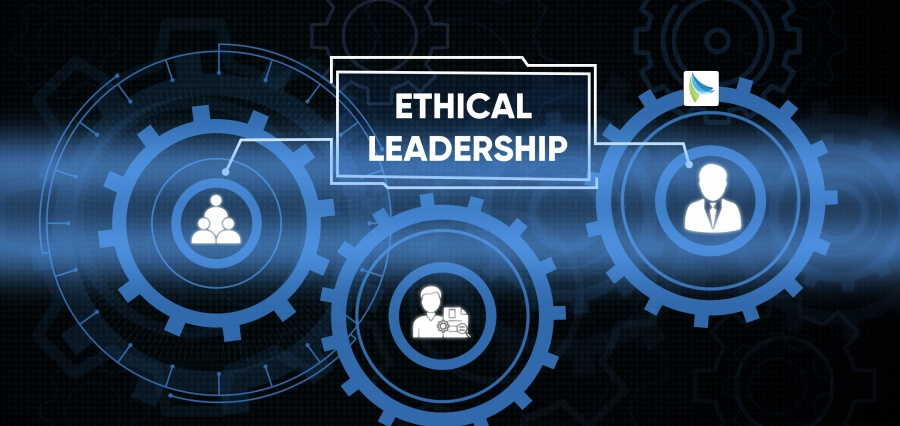Integrity in Action
In a time when businesses come and go at record levels, leadership techniques can come and go — but integrity endures. Strong, no-nonsense, responsibly directed ethical leadership is the basis for credibility and long-term success. Planning, innovation, and flexibility are important, but integrity guides institutions through turmoil and transformation. Ethical leaders build trust, generate commitment, and fashion cultures that thrive not only in boom but also in bust.
The Enduring Value of Integrity
Integrity is not just obedience or semblance; it’s a consistency of action and speech. Ethical leaders make their choices synchronize with fundamental values so that all their choices incorporate a sense of justice, openness, and respect. This way, they construct credibility — the strongest but fragile business asset.
In contrast to transient management trends in the form of quick-return- or numerically driven management, integrity is the foundation upon which reputations stand the test of time. Integrity builds stakeholder trust, comforts investors, hires virtuous employees, and creates brand value. In an age of culture where a lack of trust can ruin even the most profitable business ventures, integrity is the distinction that bridges circumstance and competition.
Ethics as a Strategic Advantage
Ethical leadership is not a theory; it’s a competitive advantage. Character-driven companies’ leaders make decisions that harmonize purpose and profit, short-term necessity and long-term living. This kind of thinking lessens the risk, brings in more reputation, and builds a good pool of employees who are dedicated to the purpose of the company.
Ethical leaders create more motivated and engaged workers. They feel no need to be embarrassed about standing up for their organization’s values because they know that what they are doing is helping to build something of value. This alignment with what is right creates greater productivity, less turnover, and more innovation that is born out of accountability. Ethical leadership is not just morally sound — it is also financially astute.
Leading Through Transparency and Accountability
Leadership education requires transparency. Visionary leaders are honest regarding intentions, decisions, and problems. They give information sincerely, even when it is negative. Transparency builds trust within and without and makes stakeholders and groups believe decisions are made equitably and for the long term.
Accountability is transparency’s corollary. Ethical leaders do not cover up and point fingers at mistakes; they take them, learn from them, and pass that on to eliminate inefficiencies. That humility creates psychological safety for teams, which creates positive feedback and continuous improvement.
With the implementation of transparency and accountability, ethical leaders create organizations that are agile and credible — qualities that prevail beyond marketplace trend or cycle.
Building A Culture of Ethics
Ethical leadership is not an isolated event; it exists and flourishes in a culture that embraces it. Integrity leaders construct the same in others at every level of an organization. They develop ethical systems, define clear standards, and model behaviors that reflect such values.
This integrity culture is reproducible. When values are codified in policies, measurement, and reward systems, workers understand that integrity in conducting business is not a choice — it is a requirement. This shared moral foundation optimizes cooperation, eliminates internal conflict, and creates loyalty that resists external pressure.
Navigating Modern Challenges
The modern business landscape brings with it the gigantic ethical challenges: data privacy, artificial intelligence, sustainability, and supply chain responsibility worldwide, to name just a few. Ethical leaders do not move such challenges through being style-concerned trend-setters, but through being faithful to global virtues of justice and accountability.
They pose tough questions: Is this decision in the best interests of our stakeholders? Is the innovation itself worthy of our values? By embedding ethical consideration into planning strategy, they assure progress is not happening at the cost of integrity. This vision-led strategy builds public trust and protects organizations from the reputational cost of ethical breach.
The Human Side of Ethical Leadership
Lastly, ethical leadership is being human in its genuine state. It’s grounded in empathy, fairness, and regard for other human beings. These kinds of leaders get more than compliance — they get loyalty and respect. Employees are heard and valued, customers are treated with respect, and partners are secured.
Good leaders are aware that each choice has the ability to touch individuals’ lives. They prioritize welfare over convenience and compassion over effectiveness. They not only build moral capital, but they build deeper emotional relationships — the intangible bonds that propel organizations through transformation and adversity.
Conclusion
Doing the right thing is the highest form of leadership. In a time fixated with velocity, innovation, and disruption, moral leadership calls us back to the truth that enduring success comes not from trends but from trust. Money leaders do not simply make money — they make sense, respect, and staying power.
As businesses enter an increasingly complex future, values-based companies will be remembered less for what they do, but how they do it. For while trends are temporary, integrity is not — robust, durable, and lasting.












